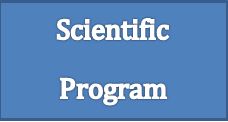
Minjun Chen
US Food and Drug Administration, USA
Title: The development of liver toxicity knowledge base to support the assessment of drug-induced liver injury risk in humans
Biography
Biography: Minjun Chen
Abstract
Drug-Induced Liver Injury (DILI) is a frequent cause of Adverse Drug Reaction (ADR) resulting in clinical trial failure, warnings and withdrawals of numerous medications. Despite the research community’s best efforts, current testing strategies aimed at identifying hepatotoxic drugs prior to human trials are not sufficiently powered to predict the complex mechanisms leading to DILI. Tremendous efforts were conducted to fulfill this knowledge gap. In the FDA’s National Center for Toxicological Research, we developed the Liver Toxicity Knowledge Base (LTKB), aiming to improve our understanding and the prediction of DILI risk in humans via integrative analysis of diverse drug-elicited data. In this practice, we discovered that several drug properties and toxicological properties, such as daily dose, lipophilicity and the capability to form Reactive Metabolites (RM), are strongly associated with serious DILI potential in humans. Here, we will introduce the rule-of-two model (i.e. daily dose≥100 mg/day and logP≥3) and DILI score model (i.e. a scoring model derived from daily dose, logP and formation of RM) developed by the NCTR research team. We will discuss the applications of these models in the context of regulatory processes with the discussion of independent validations reported in literature. Our studies suggest that these predictive models (e.g. RO2, DILI score) could help better assess the human DILI risk in drug development process.

